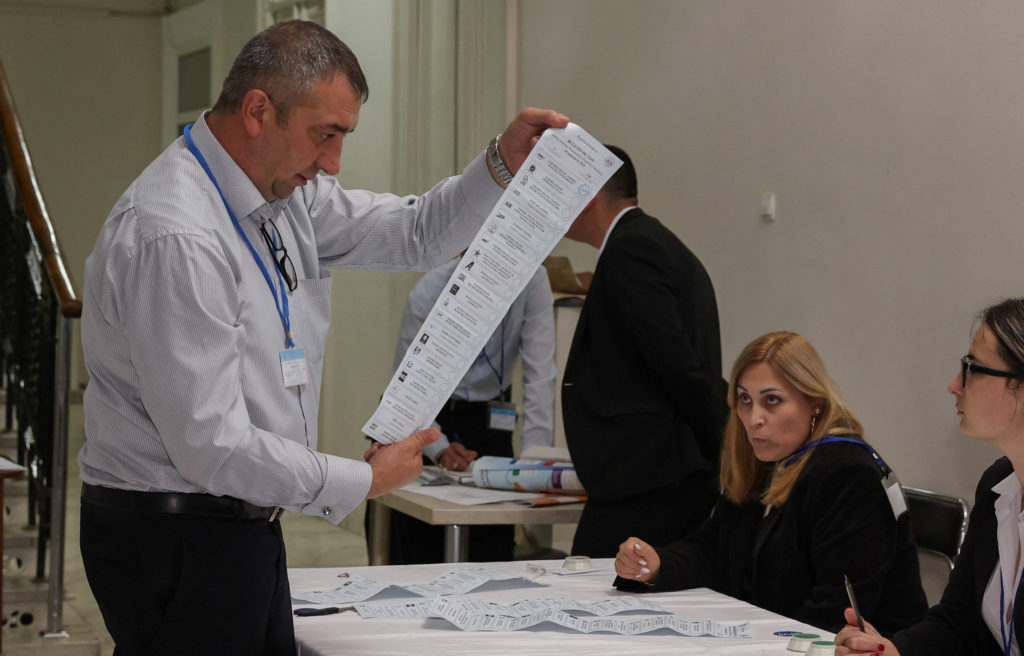Summary
Moldova's pro-EU Party of Action and Solidarity leads in parliamentary elections, overshadowed by claims of Russian interference. The elections are seen as a choice between closer ties with the European Union or aligning with Moscow. With most votes counted, the pro-EU party is ahead, but it's uncertain if they will secure a majority.
Key Facts
- Moldova held a parliamentary election where the pro-EU Party of Action and Solidarity led with 46.6% of the vote, after 92% of polling stations reported.
- The election faced interference claims, with incidents like bomb threats and cyberattacks occurring on election day.
- Moldova's president typically nominates a prime minister from the leading party or bloc, which then forms a new government with parliamentary approval.
- Over 1.59 million voters participated, with some 276,000 Moldovans voting abroad.
- Moldova is situated between Ukraine and EU member Romania and aims for EU membership, gaining candidate status in 2022.
- Moldova accuses Russia of trying to influence their elections through various alleged strategies including disinformation and vote-buying.
- Moldova's history as a former Soviet republic contributes to tensions with Russia.
- The election may affect Moldova's future direction towards either the EU or closer ties with Russia.
